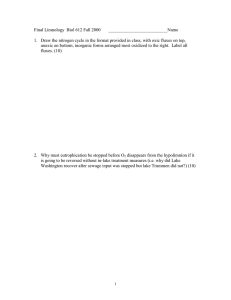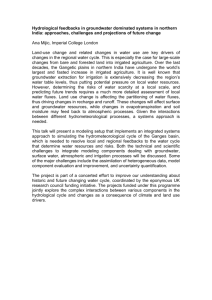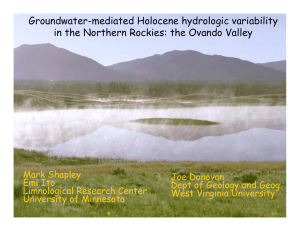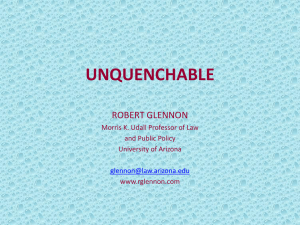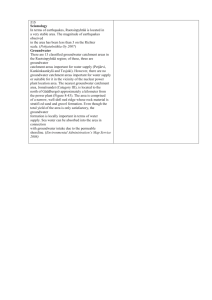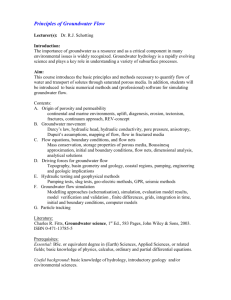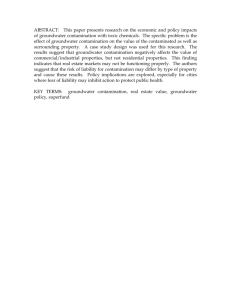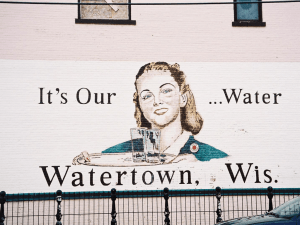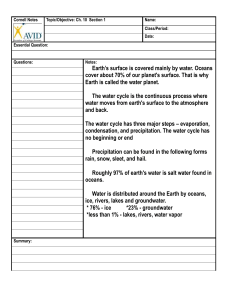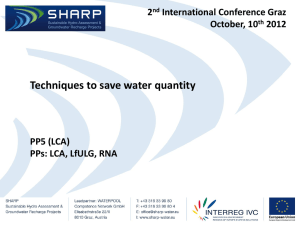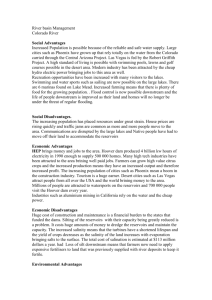Bsc_Fracture_flow_in_lakes_Fichtelgeberge
advertisement
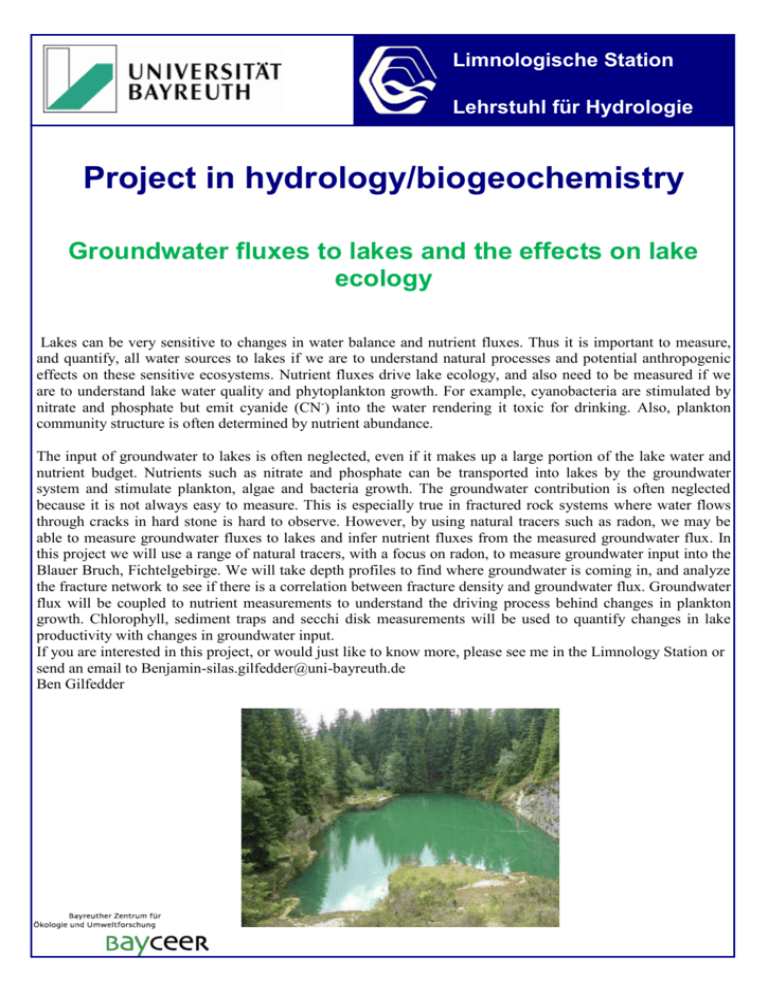
Limnologische Station Lehrstuhl für Hydrologie Project in hydrology/biogeochemistry Groundwater fluxes to lakes and the effects on lake ecology Lakes can be very sensitive to changes in water balance and nutrient fluxes. Thus it is important to measure, and quantify, all water sources to lakes if we are to understand natural processes and potential anthropogenic effects on these sensitive ecosystems. Nutrient fluxes drive lake ecology, and also need to be measured if we are to understand lake water quality and phytoplankton growth. For example, cyanobacteria are stimulated by nitrate and phosphate but emit cyanide (CN-) into the water rendering it toxic for drinking. Also, plankton community structure is often determined by nutrient abundance. The input of groundwater to lakes is often neglected, even if it makes up a large portion of the lake water and nutrient budget. Nutrients such as nitrate and phosphate can be transported into lakes by the groundwater system and stimulate plankton, algae and bacteria growth. The groundwater contribution is often neglected because it is not always easy to measure. This is especially true in fractured rock systems where water flows through cracks in hard stone is hard to observe. However, by using natural tracers such as radon, we may be able to measure groundwater fluxes to lakes and infer nutrient fluxes from the measured groundwater flux. In this project we will use a range of natural tracers, with a focus on radon, to measure groundwater input into the Blauer Bruch, Fichtelgebirge. We will take depth profiles to find where groundwater is coming in, and analyze the fracture network to see if there is a correlation between fracture density and groundwater flux. Groundwater flux will be coupled to nutrient measurements to understand the driving process behind changes in plankton growth. Chlorophyll, sediment traps and secchi disk measurements will be used to quantify changes in lake productivity with changes in groundwater input. If you are interested in this project, or would just like to know more, please see me in the Limnology Station or send an email to Benjamin-silas.gilfedder@uni-bayreuth.de Ben Gilfedder
